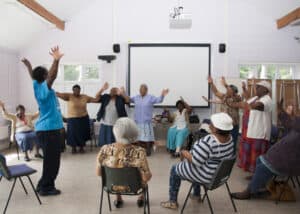Caring for elderly relatives with dementia can be a challenging yet rewarding experience. Dementia affects memory, thinking, and behavior, making daily activities and decision-making increasingly difficult for those affected. As a family member or caregiver, your support, understanding, and patience are crucial in providing a safe and comfortable environment for your loved one. This article offers practical tips and advice on how to assist elderly relatives with dementia, enhancing their quality of life and maintaining their dignity.
Educate Yourself about Dementia
To effectively help your elderly relative, it is essential to understand dementia and its various forms. Familiarize yourself with the symptoms, stages, and potential challenges they might face. This knowledge will help you anticipate their needs and respond with empathy and compassion.
Create a Safe and Familiar Environment
Modifying the living environment can reduce confusion and enhance your relative’s sense of security. Simplify their living space by removing clutter and potential hazards. Ensure that essential items, like medication, glasses, and personal belongings, are easily accessible. Keep the layout consistent to avoid confusion and disorientation.
Maintain a Structured Routine
Establishing a daily routine can help individuals with dementia feel more secure and comfortable. Consistent schedules for meals, activities, and rest can provide a sense of stability amidst the challenges of memory loss. Try to incorporate familiar activities that your relative enjoys, which can trigger positive memories and emotions.
Practice Effective Communication
Communication with someone who has dementia requires patience and adaptability. Use simple and clear language, and maintain a calm and reassuring tone. Avoid arguing or correcting their statements, as it may cause frustration and agitation. Instead, listen actively and validate their feelings.
Encourage Independence
While it may be tempting to do everything for your elderly relative, promoting independence whenever possible is beneficial. Allow them to perform tasks they can manage safely, such as dressing or eating, even if it takes longer. Be patient and offer gentle guidance when necessary.
Ensure Proper Medical Care
Regular medical check-ups are crucial for monitoring and managing dementia-related symptoms. Work closely with their healthcare team, keep track of medications, and attend appointments together. Stay informed about their treatment plan and any adjustments in their care.
Engage in Memory-Stimulating Activities
Engaging your loved one in activities that stimulate memory and cognition can be enjoyable and therapeutic. Activities such as puzzles, memory games, arts and crafts, or listening to familiar music can help maintain cognitive function and improve mood.
Seek Support for Yourself
Caring for someone with dementia can be emotionally taxing. Don’t hesitate to seek support from friends, support groups, or professional caregivers. Taking care of yourself is essential to maintain your well-being and provide the best possible care for your relative.
Plan for the Future
As dementia progresses, it is essential to plan for future care needs. This may involve discussing legal matters, such as power of attorney and healthcare directives, to ensure your relative’s wishes are respected. Speak openly about their preferences for end-of-life care, if appropriate.
Helping elderly relatives with dementia requires patience, compassion, and understanding. By educating yourself about dementia, creating a safe environment, maintaining a routine, and communicating effectively, you can make a positive impact on their quality of life. Engaging in memory-stimulating activities, seeking support for yourself, and planning for the future will also aid in providing the best possible care for your loved one. Remember, your presence and support can bring comfort and joy during their journey with dementia.



